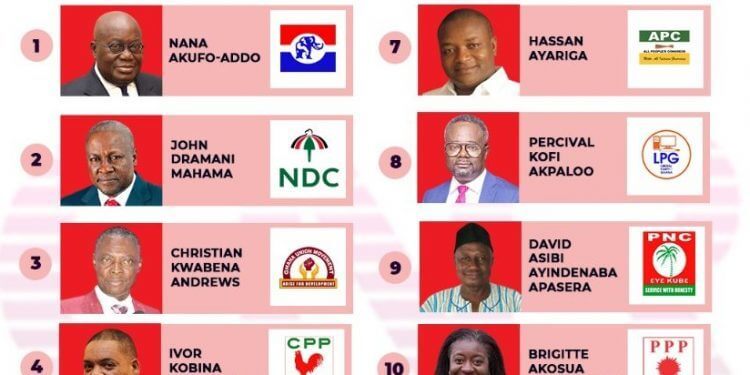Social media has gained ground as a pivotal tool in election campaigns and proven to be a force of change in the political landscape all over the globe.
Barack Obama, for instance, in his bid to win the 2008 election used social media platforms such as Twitter, Snapchat, Instagram, and Facebook to run his campaign. His win as the first black president of the United States garnered him the label “ the first social-media president.”
Facebook had over 20 million users at the time and over one billion page views per day at the time. Obama’s campaign on social media therefore gave him significantly more reach.
In Nigeria, the current #EndSARS campaign that is taking social media by storm is not only shaping an era for change in policing but also shaping the political landscape. In a unified voice thanks to the power of social media, many Nigerians including those in the diaspora are calling on Buhari to step down after making a tone-deaf speech that did not sit well with protestors. With the mass dissatisfaction of Buhari’s leadership across social media, he’s unlikely to be re-elected.
Let’s not also forget the spread of fake news on Whatsapp that rocked the Brazilian election that favoured the far-right winner, Jair Bolsonaro. ,According to The Guardian,
“In a sample of 11,957 viral messages shared across 296 group chats on the instant-messaging platform in the campaign period, approximately 42% of rightwing items contained information found to be false by factcheckers. Less than 3% of the leftwing messages analysed in the study contained externally verified falsehood.”
Election 2020 – Misinformation in Ghana’s political arena
Ghana’s political arena is not exempted from the drive of fake news via social media. The spread of fake news on social media can create tension among the populace and lead to skepticism, outrage, and political unrest, undermining the peaceful breeze that has graced the country. With the constant heckling between Ghana’s main political rivals, the New Patriotic Party (NPP) and the National Democratic Congress (NDC) in their bid to win the election, misinformation/fake news becomes the order of the day.
Notable is the recent misinformation by John Mahama when he said
“The IMF in its Sub-Saharan African Regional Economic Outlook forecast the current rate of borrowing and debt at a frightening 76.7% debt to GDP ratio. Unfortunately, Ghana is back to HIPC status under Nana Akufo-Addo and Ken Ofori-Atta administration.” Mahama made this statement on Monday during a Professionals Dialogue series in Accra.
The IMF has, however, denied classifying Ghana as a Highly Indebted Poor Country based on the available data. A statement by the IMF reads
“We have been made aware of (social) media reports stating that Ghana has recently been added to the list of Heavily Indebted Poor Countries (HIPC) by the International Monetary Fund (IMF). As a result, we would like to provide the following clarifications:
1. The HIPC Initiative is essentially CLOSED for countries that have already reached the Completion Point.
2. As you may recall, Ghana successfully reached the Completion Point in July 2004.
3. The list of countries that have qualified to the HIPC Initiative since inception in 1996 is regularly updated on our website and MUST NOT be interpreted as a new “HIPC list”.
4. Any such interpretation is flawed and may be deceptive.
5. Also, the recent update of Ghana’s debt-to-GDP ratio has NOT triggered any decision or action by the IMF. For ease of reference, you can access the latest issue of the Fund’s Regional Economic Outlook for sub-Saharan Africa on our website.”
Election 2020 – Social media campaign expenditure
Social media plays a major role in marketing the campaigns of political parties. Though political parties still embrace the traditional forms of marketing, social media has gained a foothold in election campaigns and thus witnessed an increase in spending by political parties.
Social media provides an inexpensive way for parties both great and small to establish their presence and increase their support base. However, this might not entirely be the case in election 2020. Social media may be increasing campaign costs and further dividing the gap between political parties. Political parties such as NPP and NDC that can afford to spend on social media campaigns have a wider advantage in establishing their presence than lesser-known parties such as All People’s Congress (APC) and People’s National Convention (PNC).
The ruling party, NPP is said to have hired over 700 people to work on social media according to a research report. These workers are paid salaries which further stretches campaign spending in addition to the traditional marketing campaigns. Periods of election therefore create temporary jobs and place money in the hands of the people thanks to the power of social media.
Changing the narrative
When it comes down to the spread of fake news/ misinformation, social media platforms cannot extinguish the spread or delete them. Social media giant, Facebook says it will not remove fake news from its platforms because it does not violate any of its community standards.
Removing fake news would be “contrary to the basic principles of free speech,” it said. Instead, fake news will be “demoted” in the news feed.
It is therefore up to us, the users, of these social media platforms to determine what news constitutes fake news, and curb the spread of such news to protect the sanctity of the election process in the December polls.

,




